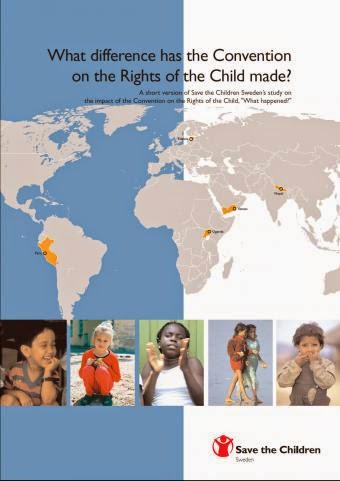I recently chanced upon an article, titled ‘Has 25 years of children’s rights made any difference?.’ While the article mainly veered off from the inherent meaning of child rights by talking in depth about the United Nations Convention for Child Rights (UNCRC) and developmental and policy measures in support of the same, being on threshold of the start of the new year, one cant help but ponder the cogency of the question at hand.
It might have been
25 years since the UNCRC was passed but in reality, especially in a country
such as ours, the concept of child rights and the importance of children is in
its infancy.
We do have a
suitable level of legislation in place to tackle with the issue of child
rights, and the perceptions and awareness of people in pursuance of this cause
are definitely rising.
At CACR itself,
this year we saw active participation of approximately 100 volunteers from some
of the best colleges across the city, in many of our programmes to improve the
quality of lives of children.
We had the Computer
Literacy Programme where we tied up with IIT-Bombay and we reached out to more
than 300-400 children across BMC schools throughout the city to teach basic
computing skills to them to equip them with computer literacy for their later
lives. We also relentlessly chivied the matter of the quality of mid-day meals
for the students of Municipal Corporation run schools and ensured the
conduction of regular quality checks and filing of complaints for the benefit
of the children.
We also had a campaign and organized shoes for children from over 5 municipal schools and encouraged them
to participate in the Must-Run Marathon.
Seeing all such
efforts being taken and success being achieved in the field of child rights’
upliftment, the fact that there is still a long way to go, is not so much
disheartening as it as encouraging.
As we herald the
coming of a new year, we also herald the coming of the myriad challenges,
accomplishments, problems and pitfalls, victories and achievements, in the
field of the rights of children. CACR as an organization, has spent each
passing year tirelessly in pursuit of these endeavours, and we will strive to
do the same this year as well.
A happy new year to
one and all!
-Anand Banerjee is a intern with CACR, A education start-up working on the problems of child rights,education, and health.
